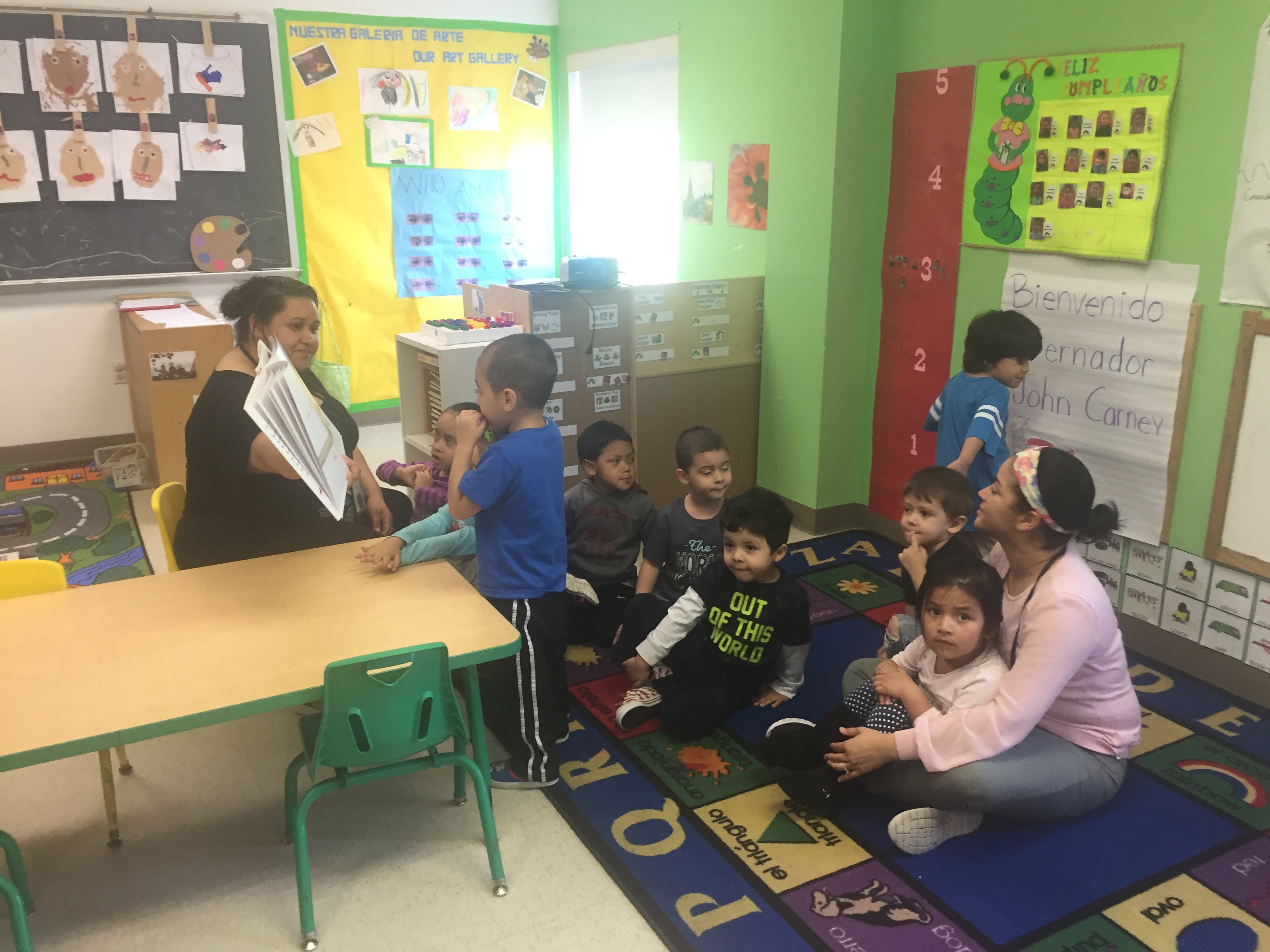Delaware gets $7.6 million federal grant for early childhood education
Listen 0:56
A new $7.6 million federal grant will help Delaware fund learning programs low-income preschoolers like this one at Wilmington's Latin American Community Center. (Cris Barrish/WHYY)
Delaware’s challenges in early childhood education can be summed up in two bleak statistics.
Nearly 40 percent of children under age 6 are from low-income families. In addition, almost 70 percent of all 5-year-olds are not ready for kindergarten.
With those numbers and others in mind, state officials have been embarking on a dogged mission to teach children in a competent classroom setting before they walk through the doors of their elementary school.
One initiative is the Delaware Stars program, which rates and aims to improve the quality of early care and education for preschoolers. Last year, the percent of poor children under 6 in a highly rated Delaware Stars program was 76 percent — up from just 5 percent five years earlier. The number of 5-star programs statewide also has increased from 24 in 2012 to 203 in January.
But with budget woes a stark reality for new Gov. John Carney, legislators and educators, Delaware Stars will only get $4.7 million in Carney’s proposed fiscal 2018 budget. That’s the same as the current year, but $3.2 million less than outgoing Gov. Jack Markell proposed before leaving office in January.
Carney has also proposed an additional $36 million in cuts to Delaware’s 19 school districts that has educators worried about how they will keep all their teachers, sports and other programs.
But Thursday, Carney announced some good news: a $7.6 million federal Early Head Start-Child Care Partnership grant to help low-income children.
Targeted toward kids from birth to age 3 in Delaware Stars programs, the money will be spent in Delaware’s central and southern counties, Kent and Sussex. State officials say those areas have a continued need for high-quality infant and toddler care and holistic services, such as health and nutrition.
The money, which will be spent over five years, will supplement a similar $7.2 million grant obtained in 2015 grant for Delaware Stars programs statewide.
Carney, joined by Education Secretary Susan Bunting and a handful of state legislators, revealed the new infusion of dollars at Wilmington’s Latin American Community Center, which is a beneficiary of the 2015 grant.
“I don’t think there’s anything that’s a better investment than investing in early childhood education,” Carney said, adding that the taxpayer money spent teaching young children can reduce what is spent on incarceration and other social services programs for adults.
The Early Head Start-Child Care partnership integrates the financial and program support of three programs – Delaware Stars, federal Early Head Start, and Delaware’s Purchase of Care program. The goal is to raise the quality of infant and toddler child care with more stabilized funding and by paying for teacher education, infant-toddler classroom materials and playground equipment.
The program also provides wraparound health and parent services for children from low-income families, such as developmental, nutrition and dental assessments, referrals to services, home visits and help accessing housing, food and job supports.
“This grant will provide more infants and toddlers in some of our neediest areas the chance to have the best possible start,” Bunting said.
Maria Matos, the Latin American center’s executive director, said the money is critical to programs that aim to cut the achievement gap between poor and more-affluent students.
“If you do not give our poor children, doesn’t matter what color they are, they could be purple with polka dots, if they are poor they need an early start and we have to give that to them or they are not going to succeed in school,” Matos said.
“Ultimately this early start will benefit our state and that’s the bottom line where we’re going, that this state continues on because we have leaders that saw that.”
WHYY is your source for fact-based, in-depth journalism and information. As a nonprofit organization, we rely on financial support from readers like you. Please give today.





